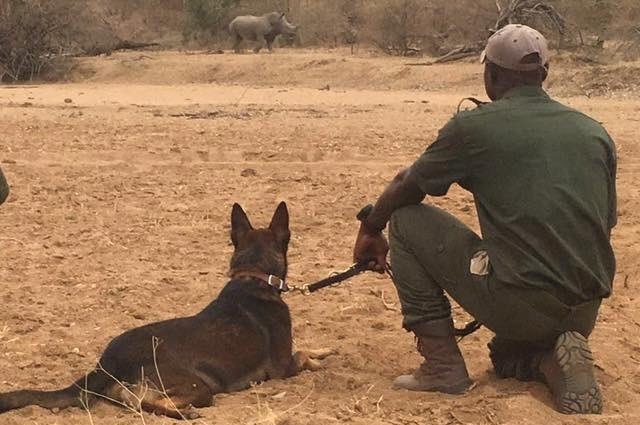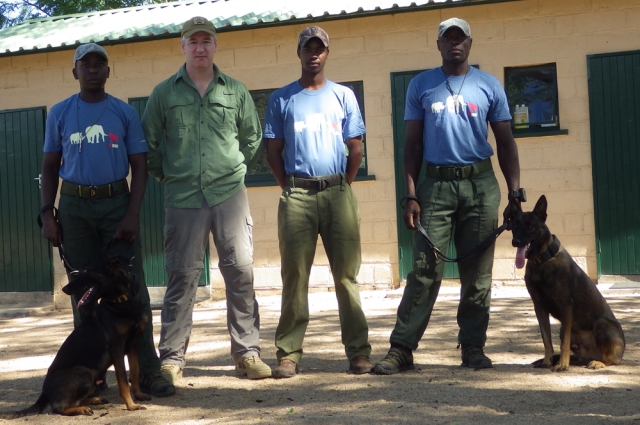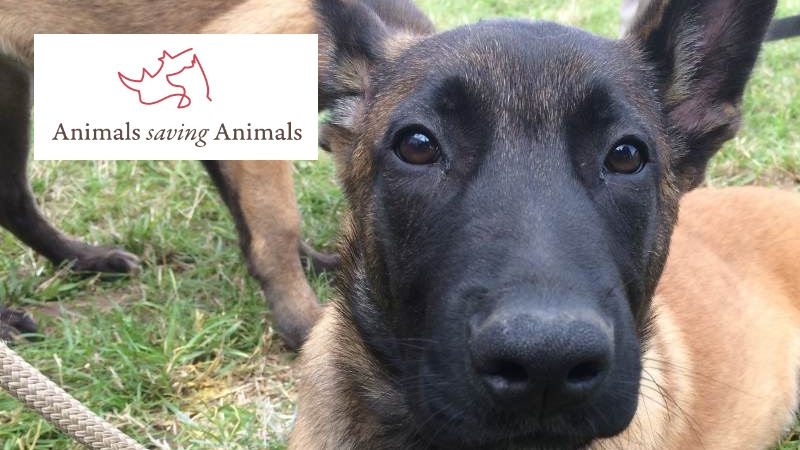Donated: US$ 31,100
Animals saving Animals (ASA) train and deploy highly specialised dogs to anti-poaching units. The addition of these canine units has made a huge impact and is a vital tool in the battle against the poachers. At Ol Pejeta in Kenya only one rhino has been poached in two years and at Mkomazi in Tanzania there have been no poaching incidents in the seven months since the dogs caught the last bush meat poaching gang.
ASA currently has over 20 operational dogs providing operational support to five countries in Africa protecting elephant, rhino and lion.

One dog has the ability in favourable conditions to secure a wildlife habitat of up to 32km2 with the search capabilities of up to 60 rangers covering the same ground over the same time. Due to their senses dogs can track at night, exert 240psi of bite pressure and run at 32km per hour. They cannot be bribed and will work seven days a week providing they have 8 hours rest and the correct care.
The breed of dogs favoured for this highly specialised work are Belgian Malinois – Malinois are intelligent, loyal, agile, sturdy and equally skilled at tracking, detecting, guarding and apprehending. ASA also work with bloodhounds and Spaniels who are utilised for tracking.
From Pups to Protectors
Specialist training starts at 3 months after the pups have been assessed for suitability. Not every dog is right for this role. Extensive raining is conducted by Daryll Pleasants, founder of ASA, and his team. Visits to The Big Cat Sanctuary and local zoos help to acclimatise the dogs to the sights and sounds of Africa, while taking to the skies in helicopters is another essential element of their training.
Once they are deployed to Africa Daryll conducts further training with the dogs and their new handlers including work on both handling and tracking. These visits are repeated, with ongoing support provided. The dogs need safe kennels and runs as well as equipment to keep them safe, from leads and harnesses to body armour and goggles. They need high protein food, veterinary care and each dog also has a GPS tracker in case they should become separated from their handler. Handlers also need to be equipped.
In 2016/17 EAE paid for Stage 1 funding of its first anti-poaching dog.
Stage one cost £6,500 per dog and covers purchase of puppy, inoculations, food and training for one year consisting of foundation training in search, tracking and bite work.
That dog – Vaala – is now an operational anti-poaching dog in Save Valley.

The Save Valley, Zimbabwe
One of ASA ongoing project is ‘Save Valley’ Zimbabwe. This is a 3,000 km reserve housing one of only 8 viable breeding populations in the world (about 160 rhino & 2000 elephant). They had two dogs ‘Rogue’ & ‘Polaris’ on operational work. They were joined by Vaala. This is a front line unit with continuous poaching attempts, the most recent being when four poachers were caught, and rifles and associated items seized. On further investigation one of the rifles captured was linked to a shooting in Harare of a woman and eight other rhino deaths.



Leave a Reply